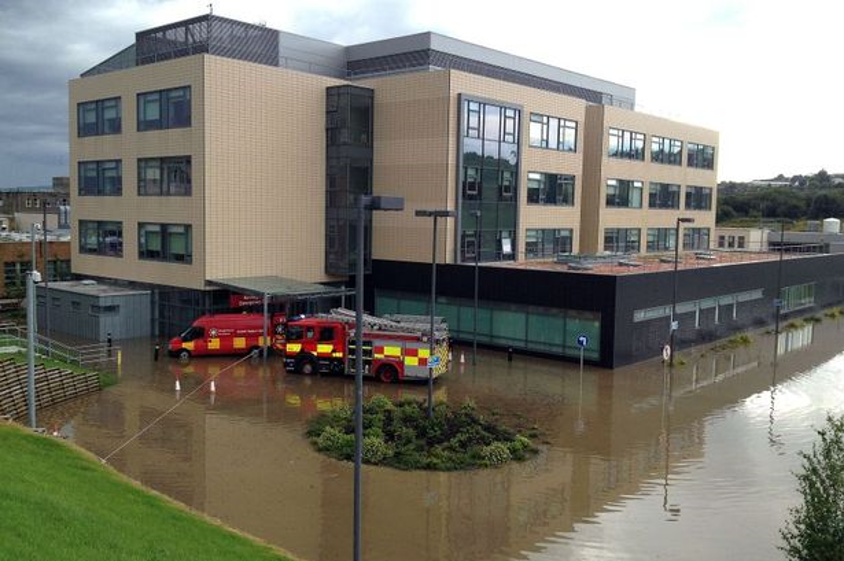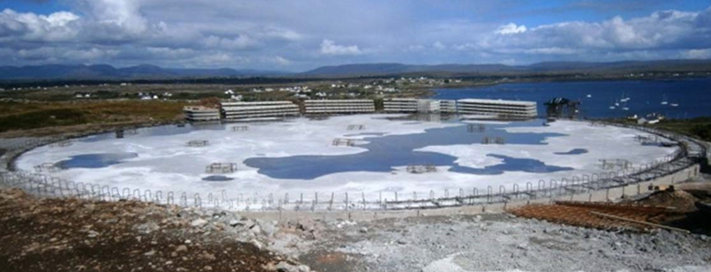The Westmeath Water Conservation Project entailed a 3 stage approach to tackling the issue of unaccounted for water (UFW).
- Stage 1 involved putting Water Management Systems in place, District Meter Areas, to quantify the extent of the problem and systems to help improve operational efficiencies
- Stage 2 centered around rollout of an Active Leakage Control Programme i.e. finding and fixing leaks.
- Stage 3 Rehabilitation of defective sections of water supply network assets based on Stage 1 and 2 activities.
Our involvement of the Lynn Cross to Milltownpass contract was for the Stage 3 Pipeline & Asset Management (Rehabilitation) requiring the replacement of over 16km of 200mm and 300mm Asbestos Cement watermains, which was prone to frequent bursting and interruption to water supply. The project was procured as a Design Build project which permitted a more sustainable (and innovative) approach than a traditionally procured contracts, adopting trenchless techniques and introducing where possible new materials and products. In line with the zero carbon One Planet Living principle, the carbon footprint for the construction of the Lynn Cross project, which was constructed in part using trenchless technology was estimated utilizing the UK Environment Agency Carbon Calculator. The CO2 emission was estimated to be reduced by 14% when compared to the footprint if the project were to be completed as an open cut design.
In the true spirit of delivery of a sustainable project, this has delivered on the following:
- Social Benefits alleviation of a supply/demand problems, Improved Drinking Water quality, alleviation of low pressure problems, reduction in interruption to supply, Knowledge and skills transfer and local employment during construction sustaining-
- Environmental Benefits: Reduced water abstraction, Reduced Energy (impacting on carbon footprint), Reduced Chemicals, reduction of Leakage of treated water to the existing environment, Careful choice of durable watermain replacement materials and use of trenchless techniques to minimize use of backfill and road restoration Consideration of Archaeological and Ecological features was also critical prior to and during construction activities.
- Economic Benefits through Operational Cost Savings resulting from lower pumping and water treatment costs, maximizing the existing network capacity and deferral of capital expenditure on upsizing surplus capacity on the existing network results in their being no impediment from a water supply perspective to the potential for growth in Lynn Cross Milltownpass area.



